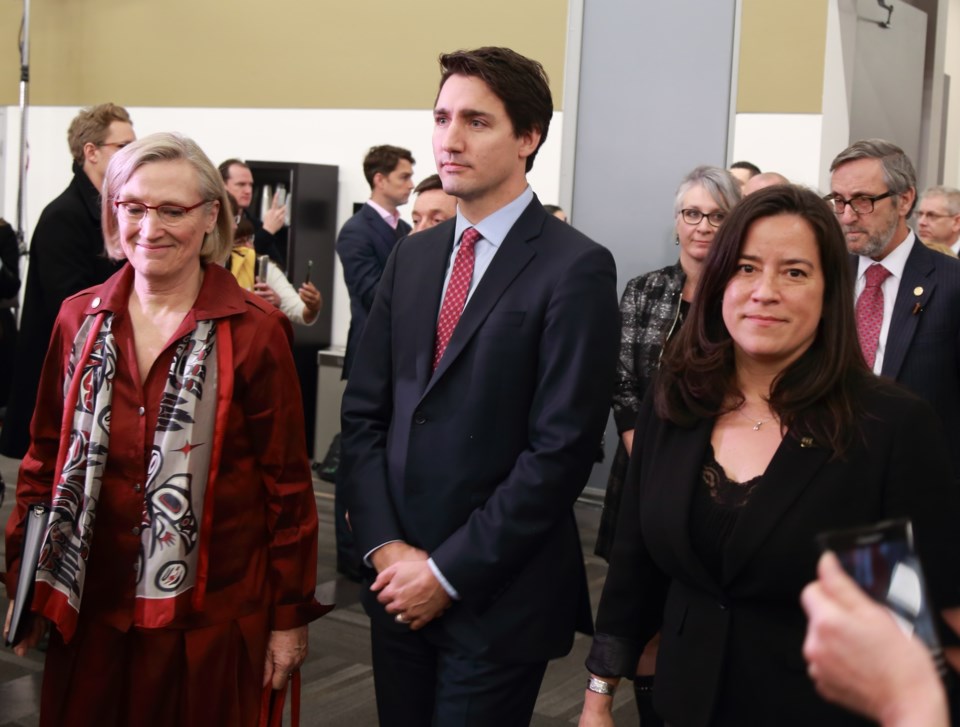The Roman satirist Juvenal raised a deep philosophic question of governance: “But who will guard the Guardians themselves?”
The answer came centuries later with the evolution of the rule of law. Political scientists have often argued that democracy without the rule of law is nothing more than mob rule.
In the aftermath of the arrest of an executive from Chinese telecom giant Huawei, our Prime Minister cited the rule of law to describe judicial independence in Canada. In the SNC-Lavalin affair, however, the same Prime Minister is afraid of telling the truth about the rule of law.
In a story that changes daily, Justin Trudeau refused to allow the former Justice Minister Jody Wilson-Raybould speak because he fears the “unintended consequences.”
Unless he is afraid of the truth, the legal aspects of any "consequences" are covered by the basic principle of the rule of law: legal culpability.
One can only be arrested for breaking a law and punished according to known sanctions. The whole SNC-Lavalin saga began with stories of breaking laws and fear of facing the consequences.
The second aspect of rule of law is universality. All of us, regardless of our positions in society and the state, are subject to the same laws. There are no exceptions; otherwise, rule of law loses its meaning.
Did our Prime Minister or his office try to treat a company with special favours? Did the former Justice Minister lose her job because she firmly upheld the concept of universality of law?
Part of the untold story were clever attempts to circumvent the existing parliamentary procedures by introducing amendments to the Criminal Code hidden in an omnibus budget bill.
It has become a habit of politicians to bypass the normal procedure of amending laws through three proper readings in the House, with the probing role of the legislative committees to study all aspects of an issue.
Despite the ruling party’s majority control, past and present legislative committees have solicited the opinions of experts, stakeholders, and other relevant actors to capture the essence of issues and policies.
Attempts have been made to hide the story of a special treatment for a Liberal connected multinational company. No explanation is provided why a “remediation agreement” amendment to the Criminal Code was passed in the Omnibus bill – and on whose behalf?
What happened to the Justice Minister when the PMO failed to enforce this amendment? The new aspect of the story appearing in the Globe and Mail reveals the decision to refuse remediation was taken on September 4 by the prosecutor’s office; the Prime Minister spoke with the former Justice Minister on September 17.
The timeline only adds more suspicion to Justin Trudeau’s version of events.
The Prime Minister seems to have failed to grasp another key aspect of the rule of law: impartiality.
Justice is blind in both adjudication and enforcement. The prosecutor’s office must act independently to decide what and whether to lay charges. The Prime Minister’s Office is alleged to have acted in arbitrary fashion to force the former Justice Minister to put pressure on prosecutor’s office for certain outcome – and the latest story of timing has strengthened earlier suspicions about this pressure.
The basic rule of judgement demands that one must not base her decision by listening to only one side. So far, the public has only heard the story of the Prime Minister, some of his ministers, and Liberal Members of Parliament.
They have all denied any wrongdoing.
Yet, the Prime Minister has refused to free the former Justice Minister from solicitor-client privilege. Allowing Ms. Wilson-Raybould to appear before the standing committee on justice and human rights without removing solicitor-client privilege is unlikely to add anything new for transparency.
The Prime Minister and his team – now minus his top adviser – continue to deny any wrongdoing. But much like Juvenal, Canadians continue to wonder: “Who will Guard the Guardians Themselves?”
Dr. Shinder Purewal is a professor of political science at Kwantlen Polytechnic University, a regular political commentator, and the author of two books, Tandoori Democracy and Sikh Ethnonationalism and the Political Economy of Punjab. He lives in Surrey.



